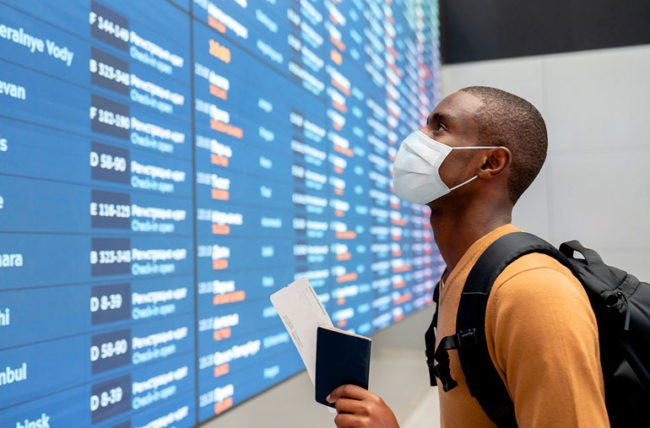
The Oklahoma Eagle Newswire
Today, the Centers for Disease Control and Prevention (CDC) updated its travel guidance for fully vaccinated people to reflect the latest evidence and science. Given recent studies evaluating the real-world effects of vaccination, CDC recommends that fully vaccinated people can travel at low risk to themselves. A person is considered fully vaccinated two weeks after receiving the last recommended dose of vaccine.
Fully vaccinated people can travel within the United States and COVID-19 testing or post-travel self-quarantine are not required as long as they continue to take COVID-19 precautions while traveling – wearing a mask, avoiding crowds, socially distancing, and washing hands frequently.
“With millions of Americans getting vaccinated every day, it is important to update the public on the latest science about what fully vaccinated people can do safely, now including guidance on safe travel,” said CDC Director Dr. Rochelle Walensky. “We continue to encourage every American to get vaccinated as soon as it’s their turn, so we can begin to safely take steps back to our everyday lives. Vaccines can help us return to the things we love about life, so we encourage every American to get vaccinated as soon as they have the opportunity.”
Because of the potential introduction and spread of new SARS-CoV-2 variants, differences in disease burden and vaccines, and vaccine coverage around the world, CDC is providing the following guidance related to international travel:
- Fully vaccinated people can travel internationally without getting a COVID-19 test before travel unless it is required by the international destination.
- Fully vaccinated people do not need to self-quarantine after returning to the United States, unless required by a state or local jurisdiction.
- Fully vaccinated people should still have a negative COVID-19 test result before they board a flight to the United States and get a COVID-19 test 3 to 5 days after returning from international travel.
- Fully vaccinated people should continue to take COVID-19 precautions while traveling internationally.
The guidance issued today does not change the agency’s existing guidance for people who are not fully vaccinated. Unvaccinated travelers should still get tested 1-3 days before domestic travel and again 3-5 days after travel. They should stay home and self-quarantine for 7 days after travel or 10 days if they don’t get tested at the conclusion of travel. CDC discourages non-essential domestic travel by those who are not fully vaccinated.
Updates to CDC travel guidance for vaccinated people can be found here:
https://www.cdc.gov/coronavirus/2019-ncov/travelers/international-travel-during-covid19.html
https://www.cdc.gov/coronavirus/2019-ncov/travelers/travel-during-covid19.html
Due to the large number of Americans who remain unvaccinated and the current state of the pandemic, CDC recommends that fully vaccinated people continue to take COVID-19 precautions, such as wearing a mask, social distancing, washing hands frequently and avoiding crowds when in public, when visiting with unvaccinated people from multiple other households, and when around unvaccinated people who are at high risk of getting severely ill from COVID-19.









